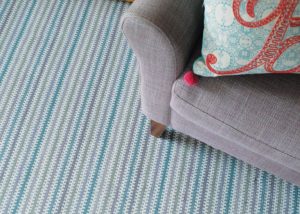Jaguar Land Rover expects microchip shortage to ease next year

Luxury car maker Jaguar Land Rover(JLR) expects the global microchip shortage – which has constrained production levels – to ease throughout the next fiscal year.
This follows comments by BMW chief executive, Oliver Zipse, last week, who said he expects to see an improvement in supplies, by next year at the latest.
JLR, which has production plants at Halewood in Merseyside and Solihull and Castle Bromwich in the West Midlands, issued production figures for the fourth quarter, ahead of announcing its annual results next month.
It said retail sales for the three month period to March 31, 2022, continued to be constrained by the semiconductor shortage. However, it has seen a gradual improvement in chip supply leading to improved production and wholesale volumes compared with the previous quarter.
This is expected to continue through the next fiscal year. Underlying demand for Jaguar Land Rover products remains strong with record orders in the quarter.
Wholesale sales are the finished cars JLR sells as a business, while retails are vehicles customers buy from retailers.
Wholesale volumes were 76,526 units and production volumes were 82,722 units in the period, both excluding its China joint venture, up 11% and 15%, respectively compared with the previous quarter ending December 31, 2021.
Compared with the previous quarter, wholesale volumes were up by 23% for Defender, 14% for Range Rover Sport and 29% for Discovery. The quarter was also noteworthy for the first deliveries of the New Range Rover, with 1,910 wholesales with the prior model now running out.
Retail sales for the quarter ending March 31, 2022, were 79,008 vehicles, down one per cent (1,118 units) from the previous quarter ending December 31, 2021 and 36% (44,475 units) from the quarter a year ago ending March 31, 2021. Retails were higher compared with the previous quarter in the UK (+34%), North America (plus five per cent) and Overseas (+10%) but were lower in China (-18%) and Europe (-17%).
Wholesales, excluding the China joint venture, for the fiscal year ending March 31, 2022, were 294,182, down 15% compared with the fiscal year ending March 31, 2021. Retail sales for the fiscal year ending March 31, 2022, were 376,381, down 14% compared with the fiscal year ending March 31, 2021.
Despite the impact of the semiconductor shortage on production and sales, the company continues to see strong demand for its products with global retail orders again setting new records in the quarter.
As at March 31, 2022, the total order book has grown to more than 168,000 units, up around 14,000 orders from December 31, 2021. Demand for the New Range Rover and New Defender are particularly strong with more than 45,500 and 40,000 orders, respectively.
Lennard Hoornik, Jaguar Land Rover chief commercial officer, said: “The successful New Range Rover launch, as well as the momentum gained from Defender, has resulted in a steadily increasing order bank, now at a record 168,000 units.
“The customer response to the first deliveries of New Range Rover is strong and we remain optimistic for the future, despite the geo-political and macro-economic challenges facing the industry at present.”
JLR said the conflict in Ukraine has not materially impacted its wholesale volumes in the quarter.
The impact on production has also been limited due to active management of the parts supply chain, including developing alternatives for the relatively small number of parts that are sourced from the affected countries.
However, it said it is difficult to predict how supply and inflationary pressures will impact the coming quarters.
Ahead of publication of its financial results in May, JLR said it expects to report positive cashflow in line with expectations, based on preliminary cash balances.








